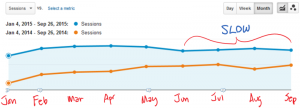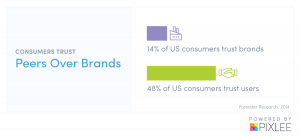Google Makes Ad-Network Policy Updates

Google has updated two ad-network policies. The first of two — Google Ads malicious or unwanted software policy — will divide into three separate policies beginning May 9, 2023.
The three policies cover malicious software, compromised sites, and unwanted software.
Enforcement will take about four weeks to ramp up, Google said.
Until these policy changes are brought into effect, Google will continue to enforce its current malware policy.
Google will update the Financial products and services policy to clarify the scope and requirements for the advertisement of cryptocurrency-related business and services.
The Malicious software policy now prohibits the intentional distribution of malicious software or “malware” that may harm — or make it possible to gain unauthorized access to — a computer, device, or network. This applies to ads and software that a site or app either hosts or links to, regardless of whether the software is promoted through the Google advertising network.
Advertisers are not allowed to use destinations that are compromised or hacked.
A compromised site refers to a site or destination whose code has been manipulated or hacked to act in ways that benefit a third party without the knowledge of the site or destination’s owner or operator, and often in a way that harms the site’s users.
Violations of Google’s Unwanted Software Policy are also not allowed. Violation of this policy will result in a warning at least 7 days prior to any suspension of the account.
The updates were made to the financial products and services policy, which takes effect April 28, 2023. This means advertisers offering Cryptocurrency Exchanges targeting Indonesia may advertise those products and services when they meet certain requirements and are certified by Google.
When promoting financial products and services, advertisers must comply with state and local regulations for any region or country in which the ads target.
The policy also applies to advertisers targeting consumers in Bahrain, Canada, Finland, France, Germany, Hong Kong, Indonesia, Israel, Japan, South Korea, Thailand, the Philippines, United Arab Emirates, and the United States may advertise those products and services when they meet the requirements and are certified by Google.
It applies to hardware wallets — a cryptocurrency wallet that stores the user’s private keys such as critical pieces of information, used to authorize outgoing transactions on the blockchain network in a secure hardware device.
They are designed to hold the private keys of cryptocurrencies, NFTS, or other crypto-based assets but don’t offer additional services such as purchasing, selling, exchanging, or trading assets.
Similar to the policy that will split into three, violation of this policy will receive a warning at least 7 days prior to any suspension of the account.
(15)
Report Post







